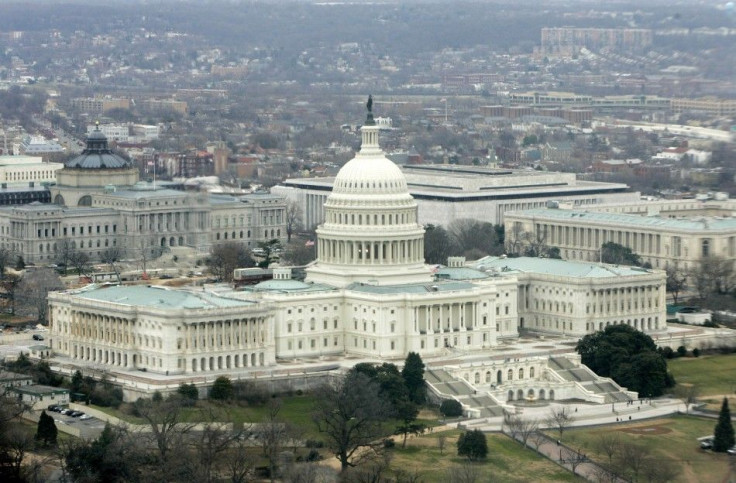Summers: U.S. Default Would Be Worse Than Lehman's

Analysis
A U.S. Government default would trigger a panic throughout the financial system worse than the collapse of Lehman Bros., one of the nation's top economists has concluded.
It seems to me an unthinkable financial risk to take, former U.S. Treasury Secretary and Economist Lawrence Summers said in an interview on CNN's Fareed Zakaria GPS program, Bloomberg News reported. It would cause a cascade that makes Lehman Brothers look like a very small event.
Most economists agree that the financial crisis that began in 2008 would have occurred with or without a decision to intervene or save floundering Lehman Bros.
However, most economists also agree that the failure to save or at least stabilize Lehman made the financial crisis much worse. So bad, that during the financial crisis' acute stage, large industrial companies like General Electric had trouble floating commercial paper. Banker-to-banker trust also broke down, nearly freezing both U.S. and global credit markets.
Summers did not mince words regarding the impact of a U.S. Government default on credit markets. Summers said a potential default makes him worry about runs on banks, runs on money market funds, and exchanges facing the prospect of collapse, institutions that had been built over decades being swept away, CNN reported Sunday.
Further, Monday's Day 9 of the debt deal impasse offered mixed evidence that the two sides at loggerheads in the stand-off, the Democrats and Republicans, had ventured any closer to the all-important common ground.
The optimist would see President Barack Obama's willingness to pursue a last-chance minor debt deal -- one that would reduce the budget deficit by far less than what the president wants -- as a ray of light.
The pessimist would see the lack of a debt degree agreement with another day being ticked off the calendar -- the U.S. Government runs out of money on August 2 -- as another negative data point.
House Republicans reiterated Monday that they plan to vote on their own legislation this week -- known as the Cut, Cap, Balance Act -- that would cut federal spending by more than $100 billion in fiscal 2012, cap future annual spending at a level equal to 18 percent of U.S. GDP, and would prohibit raising the debt limit unless Congress sends to the states a proposed balanced-budget constitutional amendment.
That GOP plan is considered 'dead on arrival' in the Senate, where Democrats hold a majority and will not support a cap on federal spending at 18 percent. Federal spending has averaged 20 percent of U.S. GDP for decades, and will likely rise as Medicare service costs increase with the retirement of the Baby Boom generation.
In addition, on Sunday U.S. Sen. Richard Durbin, D-Ill., supported President Barack Obama's proposal to cut $4 trillion from federal spending in the next 10 years, while U.S. Sen. Tom Coburn,R-Oak., said on CBS's Face the Nation he planned to offer a plan that will contain as much as $9 trillion in cuts.
At the same time, worked continued Monday on a minimalist 'last-chance' option being brokered by Sen. Majority Leader Harry Reid, D-Nev., and Senate Minority Leader Mitch McConnell, R-Ky., Bloomberg News reported Sunday.
The complex proposal would let the president increase the debt limit by $2.5 trillion by the end of 2012, provide a veto is not overriding in the House and Senate. The measure could come to the Senate floor as early as Wednesday.
And all the while, the clock continued to tick Monday toward the August 2 deadline when the U.S. Government runs out of both money and borrowing authority. If the U.S. Government defaults, the nation's credit rating would be downgraded --- rating agencies S&P and Moody's have warned about this -- the U.S. Treasury would not be able to borrow money, and government payments to senior citizens on Social Security and to other payment recipients would likely stop.
In addition, U.S. Federal Reserve Chairman Ben Bernanke, in Capitol Hill testimony last week, underscored that a default would trigger a huge financial calamity, adding that it would send a financial shockwave throughout the global financial system.
Bernanke said U.S. Government bonds are considered the lowest-risk bond investment class in the world, and serve as a benchmark for interest rates for other, more-risky bond and asset classes. If investors can't count on the safety of U.S. debt, they would ask for higher interest on that asset class, pushing up the interest rates on other assets, among other ripple effects, he said.
Political/Public Policy Analysis: Score Day 9 of the debt deal impasse a wash. There was some optimism in that it appears the two sides are morre-receptive to at least a minimum deficit reduction deal. However, another day on the calendar passed, hence we're keeping the risk barometer, on a scale of 0 to 100 percent, of the likelihood of a U.S. Government default, at 40 percent heading into Tuesday, the same percent level as Monday.
© Copyright IBTimes 2024. All rights reserved.





















